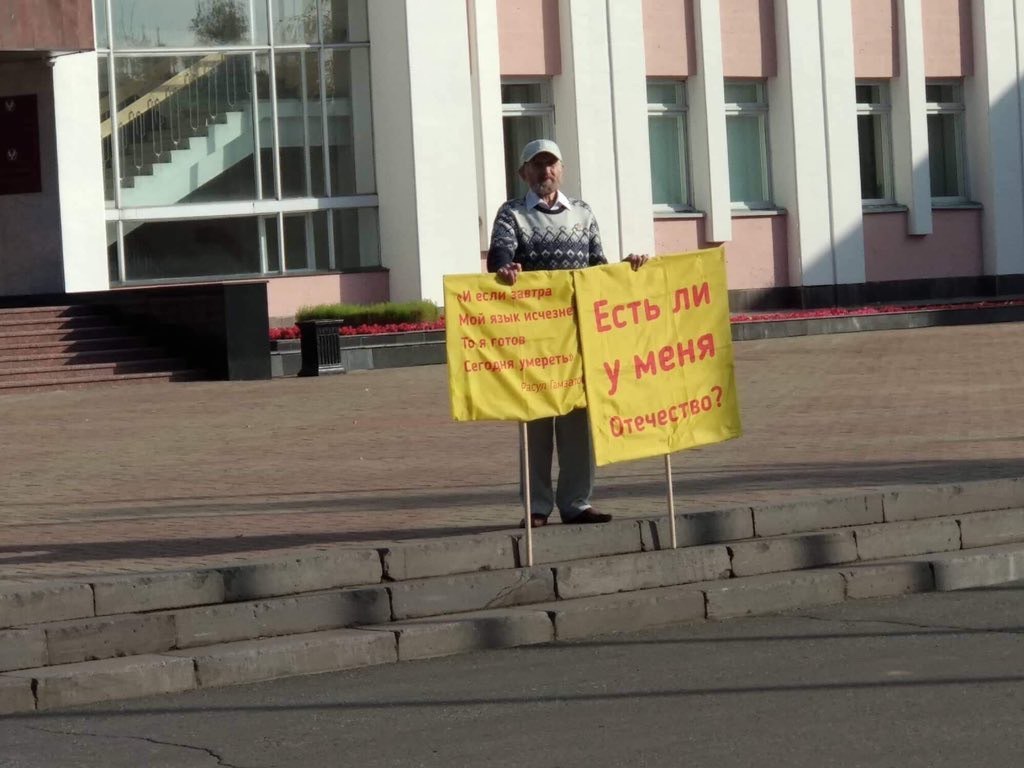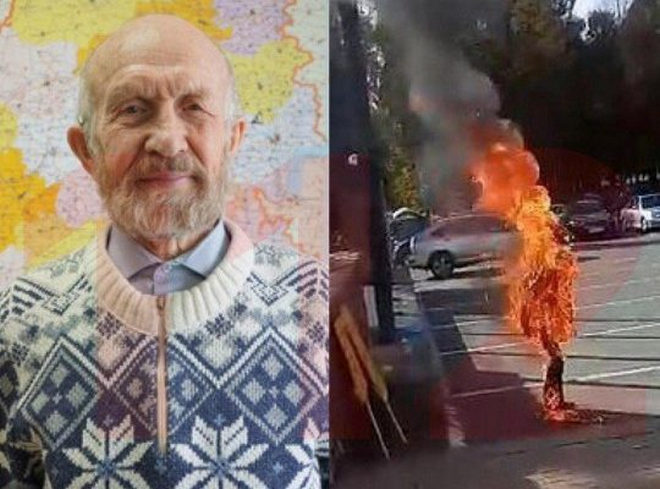Albert Razin: a sacrifice for the sake of the Udmurt language — and the reaction of the Udmurt authorities

Who was he and what happened
Albert Alekseevich Razin (born June 12, 1940 — September 10, 2019) is an Udmurt philosopher, activist, candidate of philosophical sciences, teacher, and an iconic defender of the Udmurt culture, language, and unique religion of Udmurtia.
The scientist was most interested in the problem of personality formation, inner core, and humanity. He wrote the book “Human Studies” and headed the Institute of Human. And he showed humanity himself: in 1994, Albert Razin was one of the few who publicly spoke out against Russia’s aggression in the Chechen Republic of Ichkeria, although he knew that repression would follow. And so it happened: the scientist was deprived of the opportunity to get an apartment.
Razin believed that a person of every nation has the right to live freely on their native land, preserve the culture and traditions of their ancestors, and speak their native language. Therefore, he tirelessly fought to preserve the culture and language of his homeland, Udmurtia, until the very end.
On September 10, 2019, an Udmurt activist committed an act of extreme protest – self-immolation (traditional “tipshar”) near the building of the State Council of Udmurtia in Izhevsk. He held two posters: “And if tomorrow my language disappears, then I am ready to die today!” (quote by Rasul Gamzatov, a poet from Dagestan) and “Do I have a Fatherland?”
With this step, Razin wanted to draw attention to the situation of the Udmurt language, which in recent decades has been rapidly ousted from the public and educational spheres. Albert Razin advocated for the mandatory study of the language of his homeland in schools, for bilingual signs, for the support of rural communities as guardians of cultural heritage. However, his appeal to the authorities remained unanswered or received formal refusals.
Language policy
Since 1993, the Udmurt language has had the status of a state language along with Russian.
However, since 2018, the teaching of national languages in Russian schools has become voluntary rather than mandatory. As a result, the number of hours of Udmurt has decreased sharply.
According to the 2021 census, only 16% of the population speaks Udmurt, while in 2002 this figure was about 29%. MDPI study (2024) www.mdpi.com/2226-471X/9/9/286
Response of the Udmurt authorities
The response of the authorities was weak and belated. The head of Udmurtia, Alexander Brechalov, limited himself to condolences, calling Razin a “man of culture,” but at the same time called for silence rather than discussing the connection between what happened and Russia’s destructive national policy (https://web.archive.org/web/20190920140905/https://tass.ru/obschestvo/6871288).
The Minister of National Policy, Larisa Buranova, stated that there were no crises in language policy, and that instead of teaching the native language in schools, they were going to introduce “Udmurt discos.”
As a result, despite the fact that hundreds of Udmurts signed a petition with Razin’s recommendations, no real measures to preserve the language followed (https://www.idelreal.org/a/30181087.html).
Local activists noted: “Today, the Udmurt language is an optional subject in schools. This is the road to extinction,” — www.svoboda.org/a/30156518.html .

Cultural significance
Razin’s act is not suicide, but a conscious sacrificial appeal: “He wanted to awaken the People of Udmurtia,” as one activist put it.
Razin’s “Tipshar” became a symbol of the despair and determination of a people struggling to preserve their language and identity, despite the occupation authorities’ desire to erase them.
